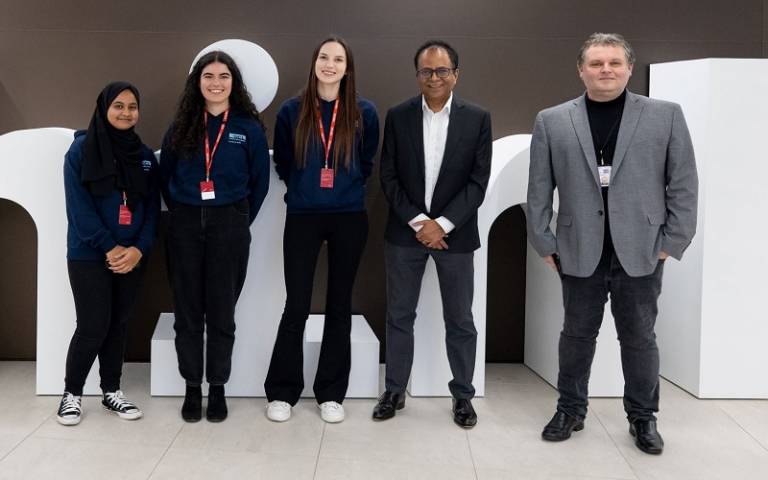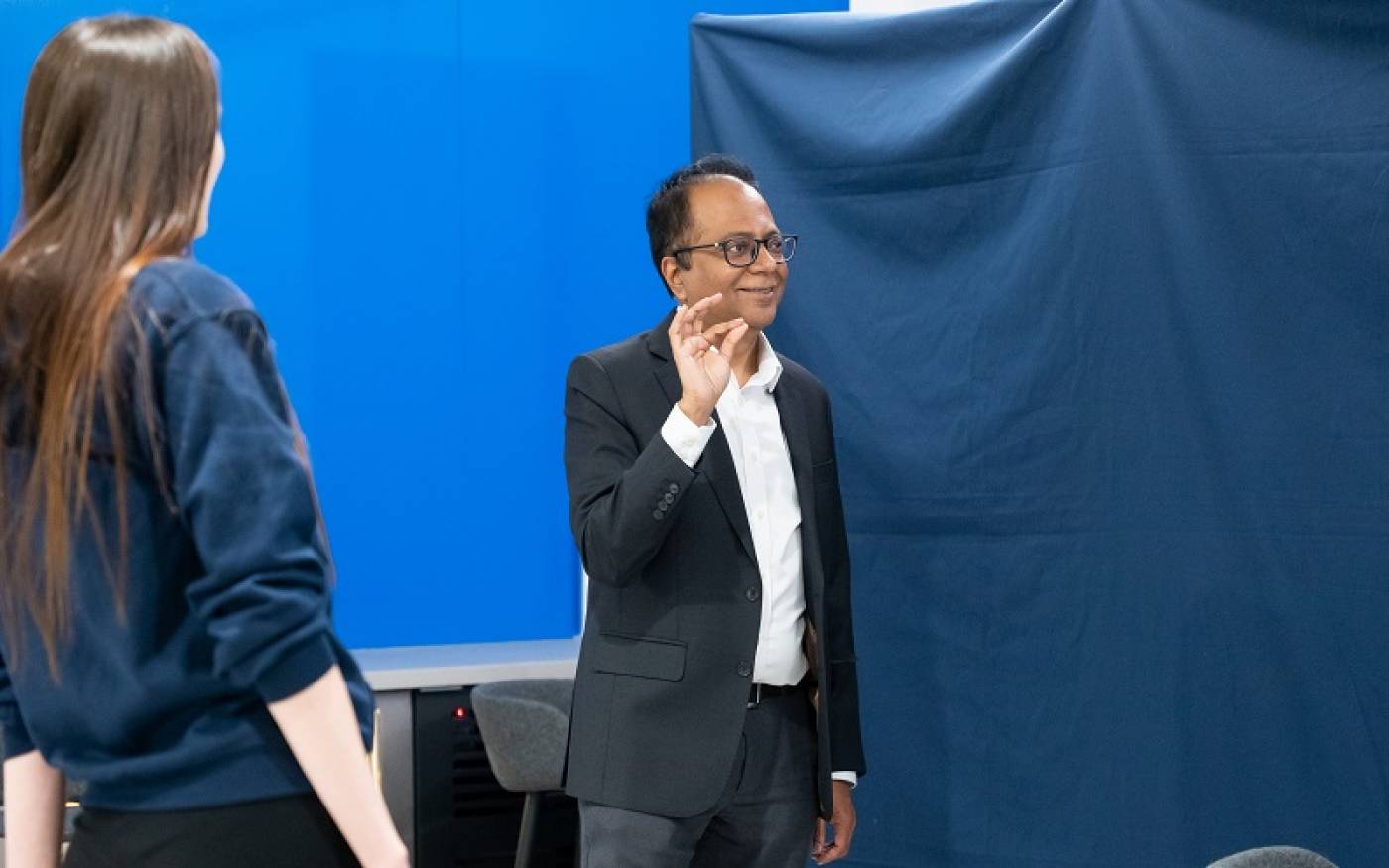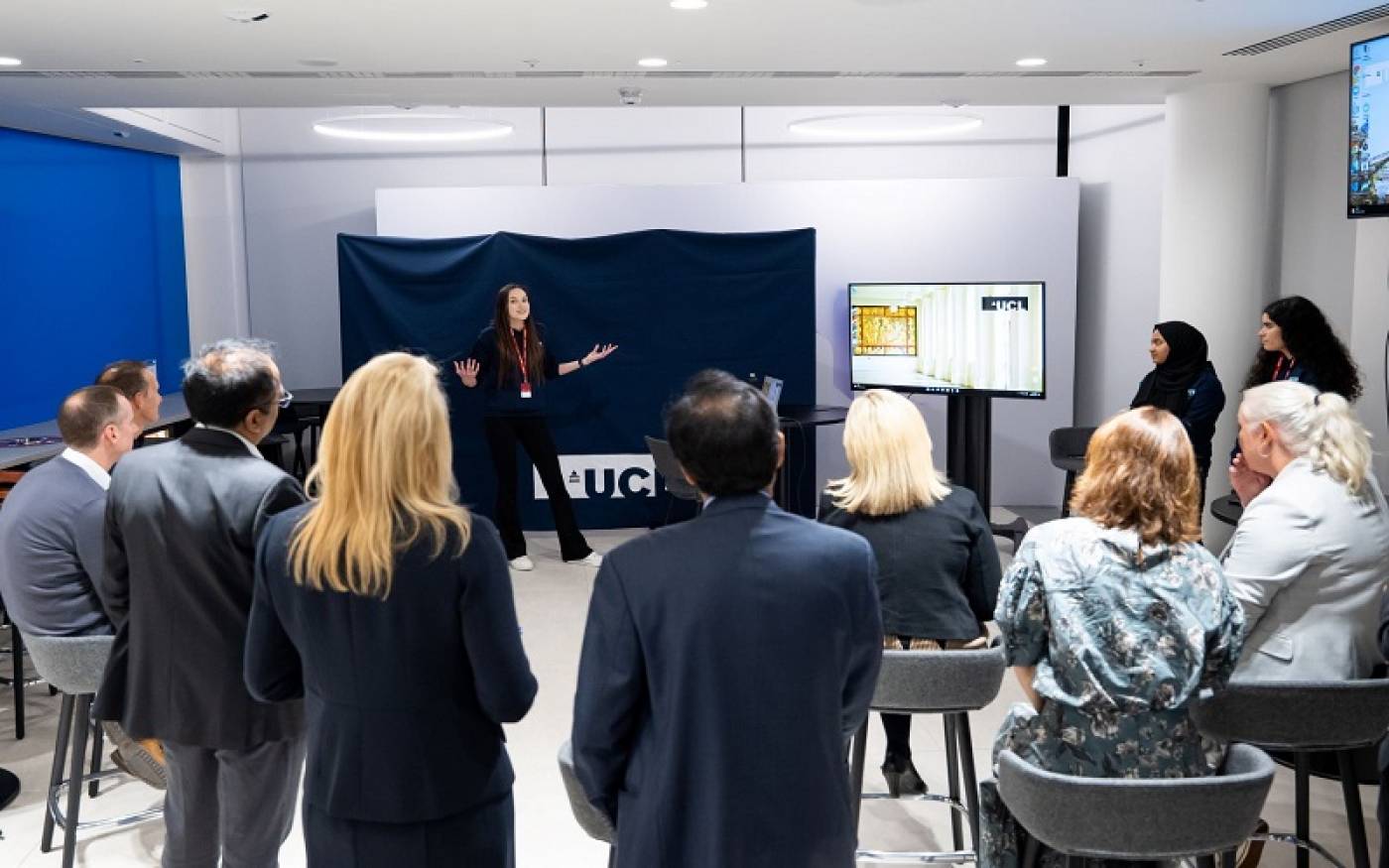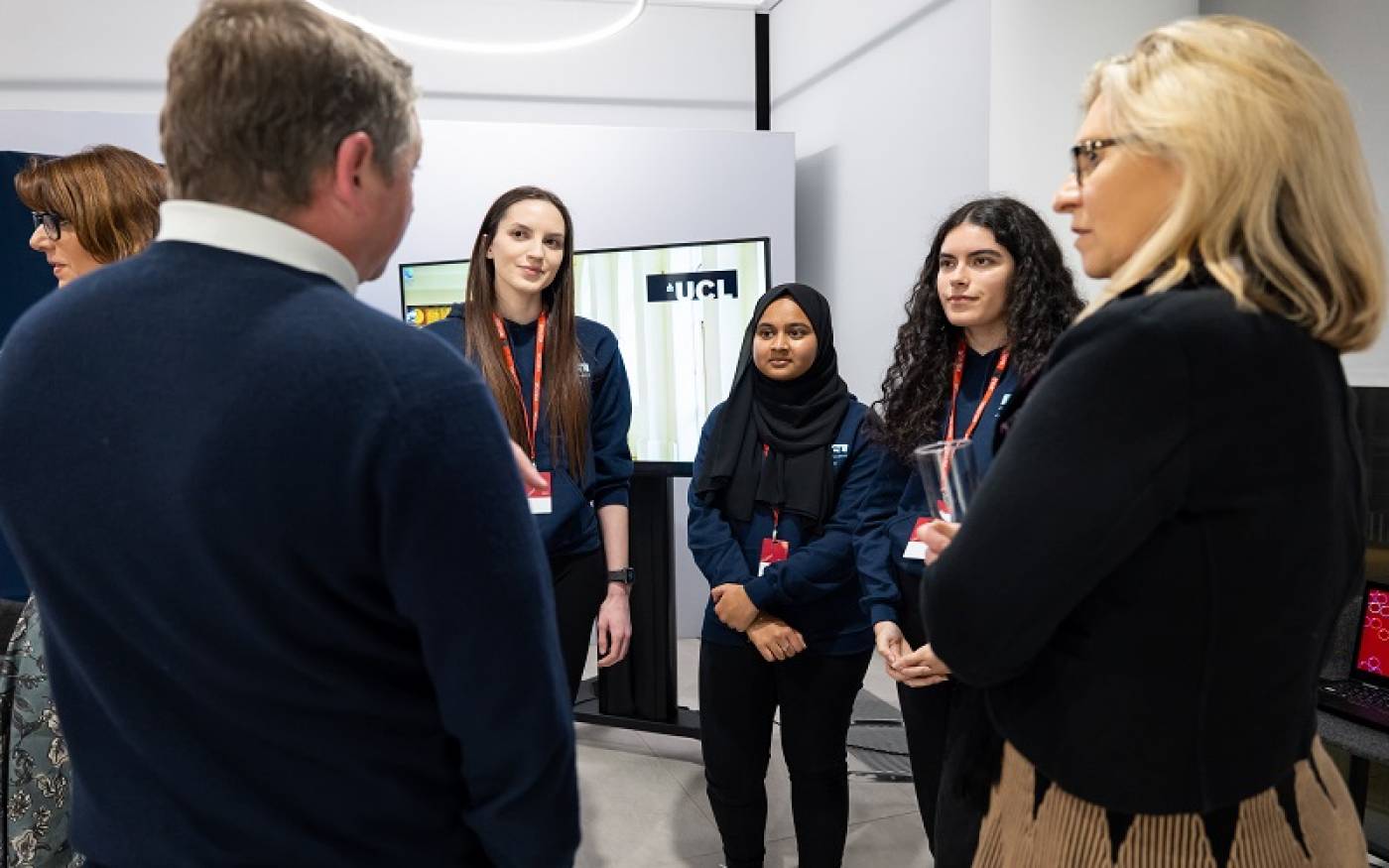UCL Computer Science students impress IBM leaders with UCL’s touchless computing software
1 November 2022
Anelia Gaydardzhieva, Fawziyah Hussain and Raquel Fernandes Marques Da Silva showed IBM’s senior team how UCL MotionInput could improve the lives of millions of computer users.

Sreeram Visvanathan, CEO of IBM UK & Ireland, hosted three computer science students from the UCL MotionInput project at a special media event at IBM’s new London HQ.
The event brought together IBM-supported organisations who are at the forefront of using modern technologies to address some of the world’s biggest challenges, providing an opportunity to see the innovations in action.
Anelia Gaydardzhieva, Fawziyah Hussain and Raquel Fernandes Marques Da Silva were invited to showcase their team’s ground-breaking technology, UCL MotionInput v3, the third edition of this software that allows users to control a PC through their webcam using intricate face and body movements, making computer use accessible to all.
The software has implications for people with reduced or restricted mobility who find computers difficult to use, as well as for healthcare staff who share PCs and keyboards with colleagues.
They were part of a team of students who developed the technology alongside UCL academics through the department’s Industry Exchange Network (IXN), a programme which gives students hands-on experience with industry as part of their degree.
IBM were one of the key industry collaborators involved in the project, along with Intel, Microsoft and the NHS.
Demonstrating some of UCL MotionInput’s latest developments to IBM’s senior leadership team, Anelia, Fawziyah and Raquel offered a glimpse into how the software could be harnessed in the future to transform computer use in a range of settings.
Screens in care homes, for example, could be navigated through a combination of speech, hand gestures or facial gestures, depending on the preferences or capabilities of the user.



Following the showcase, Sreeram said: “At IBM, we pride ourselves on innovation that matters, to us and to the world around us. We believe we are at the cusp of an era of fundamental reinvention of every industry around us, fuelled by existing and emerging technologies. There are markets to be made, new unicorns to be unveiled but everything depends on creativity and our ability to challenge the status quo.
UCL MotionInput embodies creativity and innovation to a real-world issue. The confidence and eloquence of the students won a lot of admiration from all of us, and I look forward to hearing much more about other projects them embark on.”
Commenting on the experience, Raquel said: “It was amazing - we were very grateful that Sreeram took the time to see our project and even interact with it.
Seeing him engaged and interested in something we and so many other UCL students have been working on for the past few years felt really validating, and also motivated me to keep pushing the boundaries of innovation and what technology can do for the greater good of society.”
Professor Dean Mohamedally, lead academic on the UCL MotionInput project, said: “These women are nothing short of incredible as software developers, architects and leaders in innovation. They showed for the first time truly touchless interaction of existing Windows software with just a webcam and our software.
I am super proud of all of our students who worked on the project. We look forward to further presentations from UCL Computer Science with the UK Senior Leadership Team at IBM and the Innovation Studio.”
To find out more about the project and to download the software, please visit the Touchless Computing website.
 Close
Close

